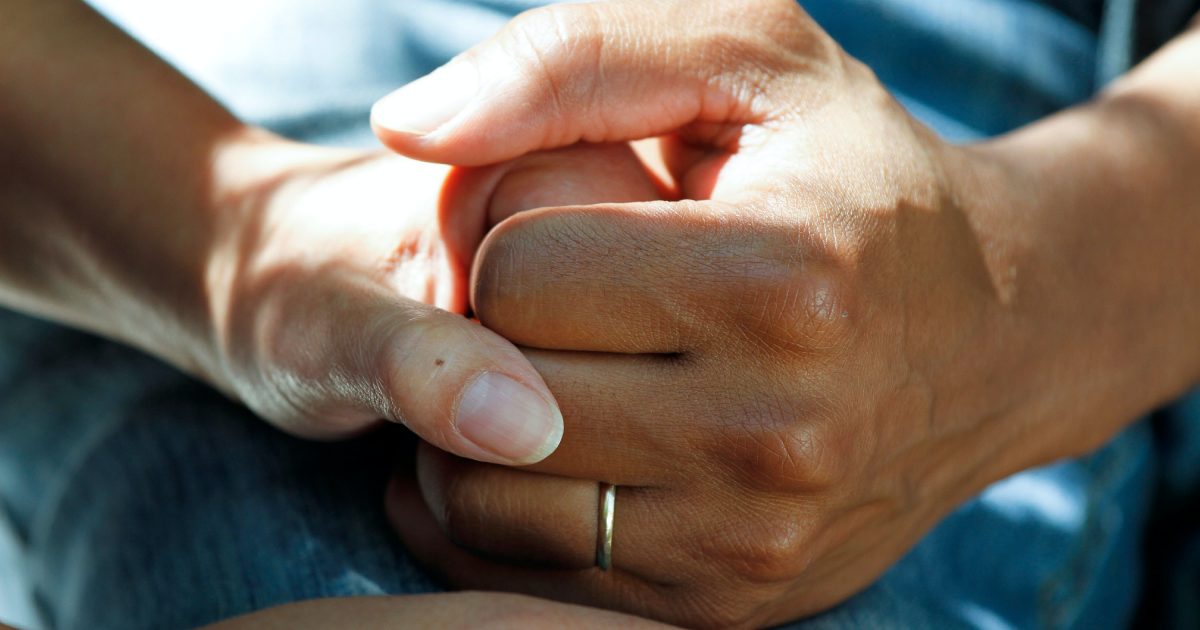Top Tips for Caregivers
- Caregivers play a huge role in one’s cancer journey, as they provide both emotional and physical help for those battling cancer.
- To honor these heroes, SurvivorNet shares some tips for how caregivers can take care of themselves too and also get the support they need.
1. Express Your Emotions
As a caregiver, it can be easy to assume you need to always be the shoulder to cry on. However, that doesn’t mean you should bottle up your emotions. Expressing feelings and emotions is key in order to prioritize your mental health, and it’s critical that caregivers do this too. Some common emotions caregivers may experience could include stress, fatigue, and burnout. So, in order to get these feelings off your chest, it’s worth finding another individual to talk openly to and vent to when needed. Justine Almada, who cared for her mother during anal cancer, encourages caregivers to be proud of themselves2. Find a Support Group
You’re probably familiar with support groups to help people through cancer, but there are also resources for caregivers and loved ones also impacted by the disease. Connecting with others who are going through similar experiences can be extremely beneficial during difficult times, as it proves they’re not alone during this journey. Furthermore, it allows the caregiver to speak openly about their experiences and be surrounded by others who can relate. If you’re not comfortable with the idea of a group setting, therapy can also be a great option as it allows an intimate one-on-one conversation.
“It’s a little harder with COVID-19 to get out, but there’s a lot of opportunities for support virtually through educational resources, support communities,” Julie Bulger, manager of patient and family-centered care at Vanderbilt-Ingram Cancer Center, previously told SurvivorNet. “You can talk to somebody. You can get therapy virtually now. Caregiving is the most important job, I think, in the universe, because you are there through the highs and lows.”
Julie Bulger explains how cancer caregivers can take care of themselves during difficult times
3. Do Things You Enjoy
Being a caregiver can be extremely time consuming, and it’s easy to spend all of your time dedicated to the individual you’re helping. However, experts have said it’s key that caregivers still take some time out of their day to do activities they enjoy in order for them to prioritize their mental health. This can be anything that brings you joy, whether it’s watching a movie, going on a walk, or simply getting lunch with a friend. No matter what activity you choose, taking time for yourself can be a huge help in remaining positive.
Related: Doug Wendt, Who Lost His Wife To Ovarian Cancer, Shares An Important Message For Caregivers
“One of the things that is common for caregivers is that the roles really shift,” Bulgar says. “The daily tasks, you are there picking up medication. You’re there to prepare foods. You’re there to go on doctor’s visits with your loved one…but as people say, you can’t care for others if you’re not caring for yourself. So it is important to have some things that you can do that’s kind of outside of the focus of caring for somebody that you love with cancer.”
4. Take Care Of Yourself
In order to fully take care of someone, you need to feel your best. Feeling fatigued or stressed at times can lead to bigger issues that could impact you, and that’s why it’s so important to not only prioritize your mental health, but also your physical health as well. That’s why, if you start to feel the physical toll of being a caregiver, it’s so important to take some time to relax or even visit the doctor if things progress.
Related: Patrick Dempsey's Advice to Cancer Caregivers: Take Care of Yourself, Too
Furthermore, it can be extremely helpful to do things which help you feel good and increase your self-confidence. This can be getting a new haircut, putting on your favorite outfit, or even spending some time in a salon to get dolled up. Feeling good on the outside can tremendously help feeling good on the inside, and this lends itself as a helpful tool in being there for someone battling cancer.
Learn more about SurvivorNet's rigorous medical review process.

